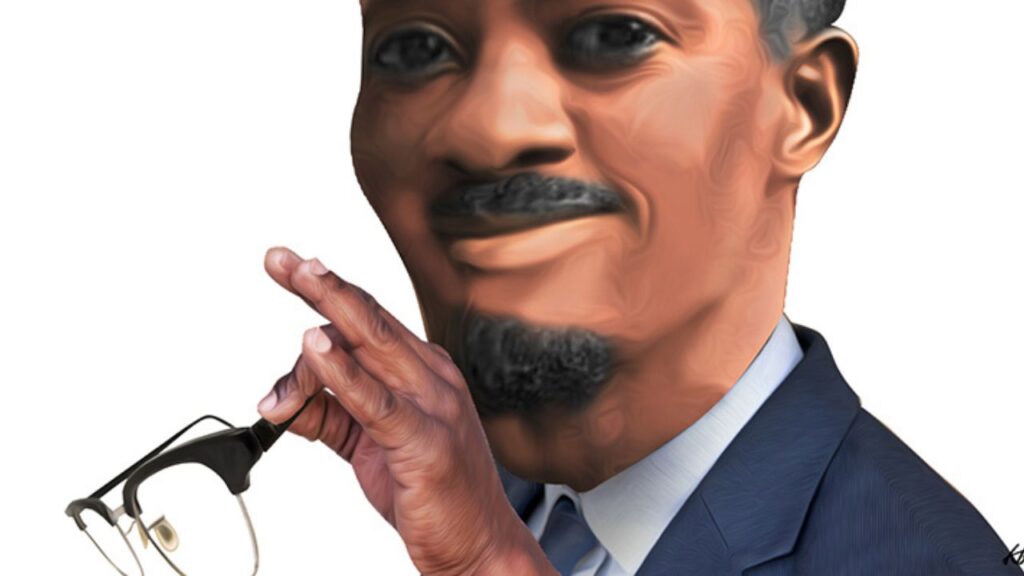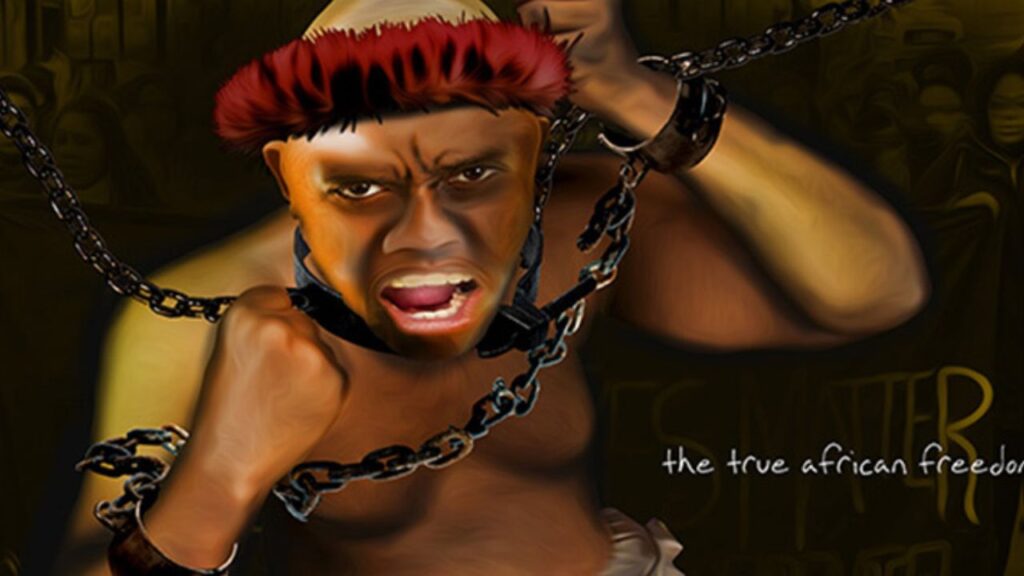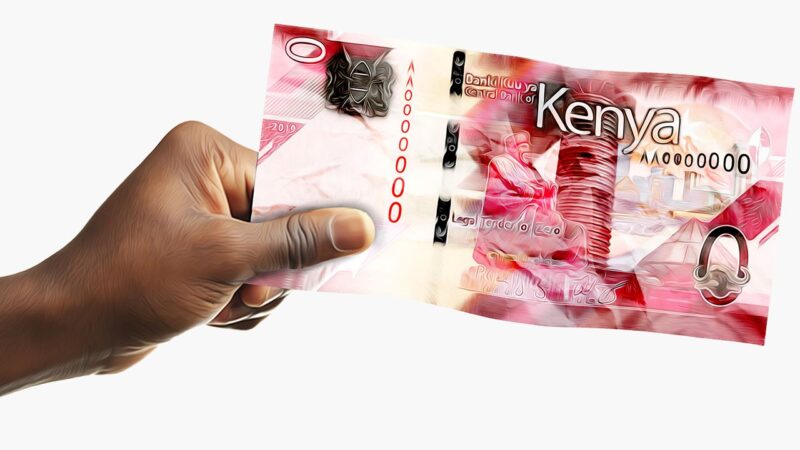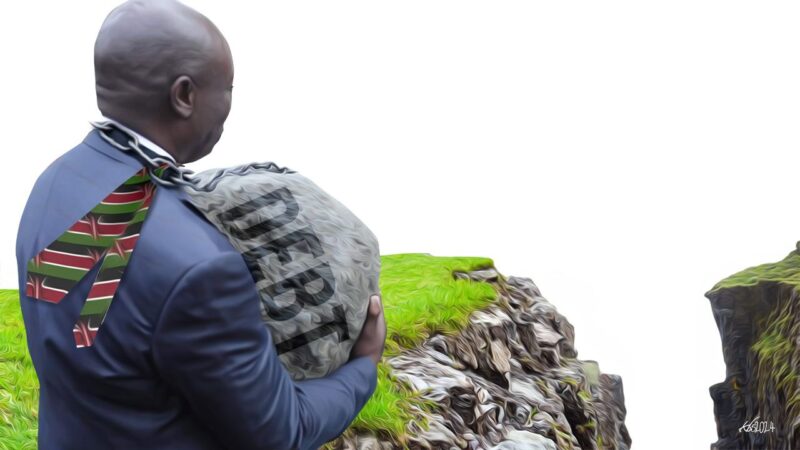Professor Yash Pal Ghai had accepted the offer of a deanship at the University of Nairobi, packed up everything ready to leave Dar es Salaam, and was saying his goodbyes when he got a call from his former student Willy Mutunga. “So Willy said to me, ‘I hope you aren’t coming to Nairobi.’ And I said, ‘I am taking up the deanship at the University of Nairobi.’ He said, ‘I can’t say much now, but don’t come. I can’t talk now, but don’t come until we tell you.’ He was ringing from the AG’s office, where he worked. I didn’t know why they were saying that. But then the University of Nairobi rang me two days later and said they were sorry but my appointment was canceled. I said, ‘You spent hours and hours persuading me, even when you knew how happy I was. I agreed because of your pressure. Why has it been cancelled?’ They said that they couldn’t tell me.”
Ghai learned later that Attorney General Charles Njonjo did not want him in Kenya. He was warned by friends that he could face harassment and even torture if he returned. Ghai is emotional as he speaks of this time, expressing frustration and outrage at the way things unfolded. “To this day, I do not know what bothered the AG. I never knew what I did. When I asked Njonjo about it, he never admitted it, even though he had signed all the orders himself.” Following the warning from Mutunga, Ghai chose to go into exile.
Ghai’s colleagues and friends attribute the orders to the work he had done until then, pointing especially to Public Law. “I believe legal radicalism, politics in Tanzania and the publication of the book he co-authored with Patrick MacAuslan in 1970 – which was very critical, in the academic and political sense, of developments in East Africa – definitely made the conservative Njonjo fearful of such a teacher in the Faculty of Law at the University of Nairobi. Of course, when I joined the Faculty of law, University of Nairobi, I adopted the approach he would most likely have adopted had he joined the faculty. So, in a way, we had our last laugh,” says Mutunga. Whitford agrees, saying that Ghai’s attack on newly independent Kenya’s public policies led to Njonjo’s actions.
Although the news was devastating, Ghai’s time in Dar had catapulted him into the international limelight. The impact of his work, not just as a teacher and administrator, but also as a trusted international adviser, was becoming increasingly clear. Unsurprisingly, senior ministers in Tanzania asked Ghai to stay on, offering him positions in the Attorney General’s office. The University of East Africa at Dar es Salaam also invited him back when the news broke that he would not return to Kenya. Ghai declined these offers, choosing instead to take on some short-term work with the East African Community (EAC). While there, he advised the EAC on membership issues and on reforms aimed at addressing the vastly unequal economic conditions of member states. It was interesting work and Ghai enjoyed it. In fact, Ghai’s performance prompted the Tanzanian Attorney General to nominate Ghai to be the Chief Legal Officer of the EAC, but Njonjo stepped in again, vetoing the nomination.
At this point, Ghai could have turned to Kenyatta to ask for assistance. Says Mutunga, “Yash could have gone to Jomo, but he’s not that kind of person and I’m glad he didn’t. It would have destroyed him professionally. Everyone would have known that Kenyatta helped him return and then he would have been seen as ‘Kenyatta’s boy.’ He would have been seen as a sycophant.” Mutunga doubts that Njonjo knew of Ghai’s connection to Kenyatta, and he is confident that Kenyatta had no knowledge of Njonjo’s actions. “Even Njonjo wouldn’t have dared to do what he did if he had known of the connection.”
Ghai’s departure for the United States in 1971 was a loss for East Africa, but he left behind a model for teaching law. Indeed, Whitford calls Ghai’s vision of – and standards for – a law school the “Ghai ideal.” At the heart of this vision is the role of law faculty as “independent critics of legal developments.” The Ghai ideal envisions law schools as havens of intellectual scholarship, marked by well-resourced and up-to-date libraries as well as by full-time law professors, who are well remunerated and who have reasonable teaching loads.
Ghai epitomised his own vision of a law professor. Ambreena Manji, who teaches law at the University of Cardiff in the United Kingdom and who is the former head of the British Institute of East Africa, says she has been profoundly influenced by Ghai’s commitment to teaching. “He will just quietly talk to you about your ideas.” Manji remembers hosting several constitutional conferences while at the British Institute, and she particularly recalls Ghai’s attention to young scholars. “I used to watch him quietly sit with young people and just quietly talk to them and question and probe. He is a very committed teacher. A lot of what I’ve tried to do as a teacher has been influenced by him. He is an exemplar of how you should live your life as an academic.”
Hope in times of grief
In 1971, Ghai settled his young family in New Haven while he lectured at Yale Law School and served as the Director of Research at the New York-headquartered International Legal Centre. The family soon welcomed a son, Tor.
At the same time, Ghai continued to receive invitations to assist with constitution-making processes around the world. While at Yale, Ghai remembers receiving a telegram from Papua New Guinea, where leaders were trying to negotiate an independence constitution. Says Ghai, “I was quite surprised. I didn’t know very much about Papua New Guinea. It turns out that the Australians offered them some consultants from Australia, and the local leaders felt that they may be biased and they may be influenced by – or even directed by – the Australian Government. So they wanted input from a totally independent person. They had just established a law school and the first dean of the law school was, at one stage, my dean in Dar es Salaam. So they asked him and he recommended me.” Ghai accepted the offer, travelling to Port Moresby from New Haven for short periods, somehow also managing his other professional responsibilities as well as the demands of his family.
Ghai’s time at Yale was positive, and having received several offers from around the country, Ghai considered settling in the United States. “But my wife didn’t like the U.S. and so I gave up a number of offers, including the UN. Since she had come to the U.S. because of me, I decided to go to Sweden [for her].” In Sweden, Ghai worked as a researcher at Uppsala University as well as at the renowned Nordic Africa Institute. He also continued to travel to Papua New Guinea, sometimes for longer periods, as the country considered how to manage the demands of multiple ethnic groups in a time of transition to independence. The assignment was particularly invigorating for Ghai, who had a special interest in minority rights. Ghai and his team travelled around the country to canvass people’s views and desires, a hallmark of his constitution-making methodology. In the end, he advised the government to be open to devolution in areas where there was a demand for it – especially for the island of Bougainville. Without that option, he feared that groups would press for secession. When, at the end of the process, the Chief Minister lobbied successfully to eliminate the draft Constitution’s chapter on devolution, Bougainville did indeed declare its intention to secede.
When violence broke out, Ghai, who had no training as a negotiator, was asked to return to Papua New Guinea to act as a mediator. He agreed, but he quickly realised that the balance of expertise was strikingly unequal. Ghai explained, “Bougainville had no lawyer to speak of and the Government had quite senior lawyers.” It would be easy to conclude that Ghai’s decision to work on behalf of Bougainville would place him in a contentious position. He had spent months working for the government, only to finally end up working “for the other side.” Amazingly, however, the integrity Ghai had exhibited throughout the constitution-making process mitigated any tension that could have existed. “Fortunately, all the people we were negotiating with were sort of friends because of the time I had spent there working. I was seeing senior civil servants, economists, finance officers, people from the Ministry of Lands. So by the time the negotiations started, I knew most of them quite well and had become good friends with them.”
Ghai’s ability to connect with actors from across political divides is emblematic of his natural ease with people. Ghai’s own anecdotes about people he has met – from local artists whose works bring life to his garden, to former Indian Prime Minister Manmohan Singh, whom he met as a student at Oxford – often end with the words, “We became good friends.” Lulu Kavoi, who works as the Katiba Institute’s Executive Assistant, describes what she was expecting when she first met Ghai. “I had only read about him and seen him on TV. I was expecting a bossy person, someone too serious for life.” She was surprised at the reality. “Working for him is fun, because he likes to understand people. He’s a mentor and also a boss, but he’s not a bossy person. He is interested in what you’re doing for your education and in your life. He would come and ask me, ‘So Lulu, what are you doing and studying?’ More like a friend I can talk to for advice.”
Devolution was eventually reinstated in Papua New Guinea. When it was time to implement the new Constitution, Ghai was asked to return, this time to chair a commission responsible for implementing devolution. Although Ghai wanted to help, he did not want such a role for himself. “I wanted a local person to be chair. I asked [Papua New Guinea leaders], even in the very beginning, that I would like to work with one or two young lawyers so that they would acquire knowledge and experience of the constitution and the background to its various provisions, minimizing reliance on foreign lawyers.” Ghai’s response to this suggestion serves as an example of his commitment to sharing his knowledge and promoting local empowerment and ownership of democratic processes and institutions.” Indeed, the person who was finally chosen for this role, Bernard Narakobi, eventually became Attorney General of Papua New Guinea, and later a diplomat.

Ghai’s ability to take a backseat in order to promote local ownership and thereby plant the seeds for long-term, sustainable democratic rule has inspired many of those who have been lucky enough to meet and work with him. Manji says, “The thing about Yash is that he doesn’t give a monkey’s about your status. He doesn’t care. He’s not going to be impressed whether you’re the president or the professor. He doesn’t care. If you have got something interesting to say, he will sit and listen. He wants to know about you.” Indeed, Papua New Guinea would later recommend Ghai to leaders in the Solomon Islands; he had local legitimacy. In 1976, Ghai was awarded Papua New Guinea’s Independence Medal, created to honour those who had performed outstanding service to the country during the transition to full independence.
Ghai’s success in the South Pacific brought him even more attention, and requests kept coming. Over the course of his career, Ghai would work on constitutions and constitutional development in many other countries, including Vanuatu, Western Samoa, Sri Lanka, Fiji, Zambia, Cambodia, the Cook Islands, Kenya, East Timor, Iraq, Nepal, Somalia, Ghana, South Sudan, Libya, Tunisia, the Philippines, and Zimbabwe. Many of these assignments were borne of personal recommendations. Says Manji, “He’s utterly, utterly non-denominational and non-racist. He’s utterly scrupulous and fair-minded. That has been key to negotiating in complex terrain.”
Although Ghai’s work in Papua New Guinea was a professional success, prompting the beginning of an extensive career as an adviser in the region and eventually the world, it was also an emotionally traumatic time. As it became clear that Ghai would have to commit more time to being on the ground in Papua New Guinea, his wife advised him to go in advance of the rest of the family so that he could set up their house and living arrangements. “At one point, I realised I had been there for two months and she kept delaying her plans to travel. When I returned to Sweden, I realised that she had fallen in love with someone else and was living with him. She had moved to Stockholm [from Uppsala] with the children.”
It was a great shock for Ghai, who struggled to balance work in Uppsala with time with his children, who were in Stockholm. “I would go to Stockholm on the weekends and take them to a park and give them ice cream. They knew only Swedish. I found it so frustrating, and I would cry when I left them. It got to be too much for me.” Ghai told his ex-wife that he wanted custody. “I told her that she should be one to visit them on the weekends.” He consulted a lawyer, but he was told that, as a non-Swedish man, he stood very little chance of winning custody against a Swedish mother. It was a significant emotional blow. Whitford recalls, “He cooked, he did all that sort of stuff. He was the primary home person; he did more than she did in that regard.”
Ghai’s relationship with his ex-wife was tense in the immediate aftermath of the divorce, and for some time afterward. It was somewhat unsurprising, then, that Ghai decided to leave Sweden when his contract expired. Wanting to remain close enough to see his children regularly and easily, however, he chose to stay in Europe. In 1978, he took up an appointment as a professor of law at the University of Warwick in the United Kingdom, where he had friends and some family.
Ghai’s new position at Warwick was also like a professional homecoming. Whitford calls it “the path of least resistance” for that time in Ghai’s life. It was “filled with academics from Dar,” recalled Whitford. Indeed, the law school at Warwick is known for its leading work in “law in context,” and it has been home to “law in context” pioneers, including Twining, Ghai, McAuslan, and many others from the University of East Africa at Dar es Salaam. Ghai thrived at Warwick, teaching constitutional law classes, publishing extensively and even taking up short appointments as a visiting professor in Australia, Singapore and the United States. He enjoyed these experiences and the exposure to different environments, never allowing his outsider status to stand in the way of the work in which he believed. In Singapore, Ghai took the government to court in a case that sought to advocate for the rights of a group of domestic workers. After a string of legal victories, he was declared unwelcome and forced to quickly leave the country. His fellow lawyers were jailed, but Ghai continued to “make noise”, forging ahead until the lawyers were eventually released.
It was at Warwick that Ghai became reacquainted with Jill Cottrell, whom he had originally met on a visit to Yale when he was still Dean in Dar. Cottrell and Ghai had met occasionally over the years, mostly at academic conferences, and they were now faculty colleagues. Their relationship quietly but steadily evolved at Warwick. Manji laughingly remembers seeing them together more and more. “Every time someone would go around to Yash’s place, Jill would be there. Nobody was told there was a relationship, but intellectually they are a perfect fit. Their relationship was a long time brewing, and it is such a great intellectual partnership.” Indeed, Zein Abubakr, Ghai’s co-commissioner on the Constitution of Kenya Review Commission, described the couple as an inspiration. “Yash’s love and affection for his wife – it’s amazing to see them, how they complement each other. It’s an inspiration for all of us. If Mzee is still able to do this, maybe we should learn something from him.”
The birth of that relationship quickly grew into a professional partnership as well. Although they were different in many ways, Manji describes the importance of their commonalities. Referring to Cottrell Ghai’s early experiences as a law professor in Nigeria, Manji says, “She had this totally global life. It took a lot of courage as a woman in that era to embark on that kind of life. When she ended up at Warwick as a young woman, she already had that outward push.” Like Ghai, Cottrell Ghai is also a quiet but determined force. Unlike her husband, however, she tends to stay out of the limelight. “Jill is very quiet and very, very studious, says Manji. “She would almost prefer it if she never had to leave the house and if she could just get on with reading whatever textbook she was obsessing about at that particular time. She’s an absolute powerhouse.”
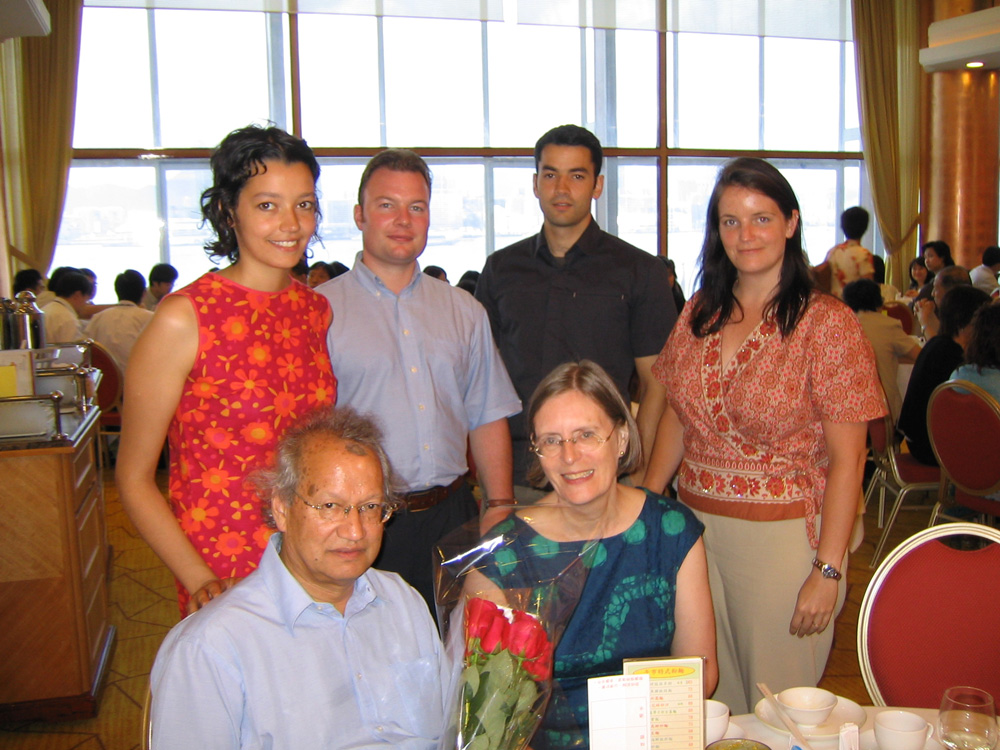 Ghai continued to act as an international adviser while at Warwick, balancing teaching and research responsibilities with missions around the globe. He found himself in a unique position, often working for the British Foreign Office but acting as an adviser to local groups. In so many of these cases, Ghai’s British training and official connections to the British government were considered background information. First and foremost, he was seen, and wanted to be seen – according to him – as “a Third World person”, as someone who could understand local views. Indeed, in the Solomon Islands, Ghai urged the Chief Minister and the leader of the opposition, who had a bitter relationship, to work together so that the British could not undercut their goals: “‘You should negotiate as a united people. If you are fighting yourselves, Britain will play one against the other.’ And I worked on it, and worked on it. I would wear slippers and go to the Leader of the Opposition. I said, ‘I’m coming home to you. Do you have a free moment?’ They liked that. For them, I was not a pompous civil servant coming from London. So I was able to establish a rapport.” At the end of the constitution drafting process, the leader of the opposition credited Ghai with uniting the country.
Ghai continued to act as an international adviser while at Warwick, balancing teaching and research responsibilities with missions around the globe. He found himself in a unique position, often working for the British Foreign Office but acting as an adviser to local groups. In so many of these cases, Ghai’s British training and official connections to the British government were considered background information. First and foremost, he was seen, and wanted to be seen – according to him – as “a Third World person”, as someone who could understand local views. Indeed, in the Solomon Islands, Ghai urged the Chief Minister and the leader of the opposition, who had a bitter relationship, to work together so that the British could not undercut their goals: “‘You should negotiate as a united people. If you are fighting yourselves, Britain will play one against the other.’ And I worked on it, and worked on it. I would wear slippers and go to the Leader of the Opposition. I said, ‘I’m coming home to you. Do you have a free moment?’ They liked that. For them, I was not a pompous civil servant coming from London. So I was able to establish a rapport.” At the end of the constitution drafting process, the leader of the opposition credited Ghai with uniting the country.
It was clear to Ghai that his work was about something bigger. Although he was in great demand, Ghai only accepted assignments that aligned with his political philosophy and that contributed to greater democratisation and respect for the rule of law. International missions were real-world applications of his academic work, a chance to have a hand in shaping progressive political frameworks that valued individual freedoms and protected minority rights. This is why, when he was first approached to help the Fijian government with constitutional issues after the first 1987 coup, he refused. Ghai explains, “I was afraid they wanted me there to ‘fix it.’ There had been some cases where the courts in other countries had accepted coups as lawful. [The coup leader’s] expectation was that I would help the new regime to achieve a similar status. I had no intention to help them ‘fix it’— and expressed my willingness to go to help [only] with the return to constitutionality.” When a delegation from the overthrown Fijian group arrived in London, Ghai reached out to them, eventually agreeing to be their adviser. Knowing that the coup leaders would be “furious” if they found out that Ghai had turned them down but had volunteered to help “the other side,” he returned to Fiji but stayed out of sight. When they required assistance, the delegation would ask for a break from negotiations and visit Ghai in his room. Negotiations were successful, resulting in a power-sharing agreement, a review of the Constitution, and a long-term agreement to resolve inter-party differences. By the time Ghai returned to Warwick, however, a second coup had been staged.
Ghai continued to be involved in Fiji, acting as an adviser to the parties in the wake of the second coup, and again in 1995-7 in the preparation of their submission to the Commission drafting the 1997 Constitution. During that period, Ghai also established the Citizens Constitutional Forum, a non-governmental organisation meant to “bring different races together in the common cause of a democratic and non-racial constitution.” The NGO reflected Ghai’s deep-felt concern about the racial divisions and inequalities in the country, issues which he attempted to address in his recommendations regarding the new Constitution. He had strong faith in the power and importance of civil society, a belief that would continue to drive his work throughout his career. In 2012, when the country’s military regime agreed to hand power back to civilians, Ghai was invited to head the Constitutional Commission.
At the same time, Ghai continued to produce legal analysis, publishing books and articles on decentralisation, the political economy of law, human rights, and multiple works devoted to the politics, law and government of the specific countries in which he had worked. His list of publications, which does not include works completed in the last two years, runs 15 pages in length. Ghai’s 1989 article entitled, “Whose human right to development?” was, according to Cottrell Ghai, a particularly important contribution and an example of his unique approach to the law. “He doesn’t always take the obvious approach. Very often, his analysis is out of the ordinary,” Cottrell Ghai explains. “In [that piece], he questioned the right to development in the sense of saying that it was for elites rather than for ordinary people. He takes a slightly more skeptical approach, and that has been important intellectually.”
In fact, Ghai’s unconventional approach to the law is what continues to impress and inspire lawyers to date. Waikwa Wanyoike, the first Executive Director of the Katiba Institute, the NGO which he founded with the Ghais in Kenya, describes Ghai’s ability to “create possibilities where a lot of people think there are none.” According to him, Ghai can “push new frontiers on nearly every subject. He’s able to find ways to read the same text and expand it in a manner that is so rights-focused. He shows hyper-creative rights-oriented thinking, and that’s probably his biggest contribution. His political savvy is also impressive – his ability to marry politics with the law and make the law work effectively on politics. He will contextualise issues, and he always starts from values and principles. That’s ingenious. He breaks the barrier between the technical elements of the law and values; he infuses rights-based values into the law.”
Despite his multiple responsibilities, Ghai also continued to act as a mentor. Mutunga says, “He made it his business to mentor me by inviting me to conferences in various places, by getting me to Warwick Law School as a visiting fellow when he taught there, by being an external examiner in my courses when I taught law in the University of Nairobi, and by sending me his writings and seeking my comments. Yash is the epitome of collective intellect. Many of his books are co-authored and some of the co-authors were his students.”



